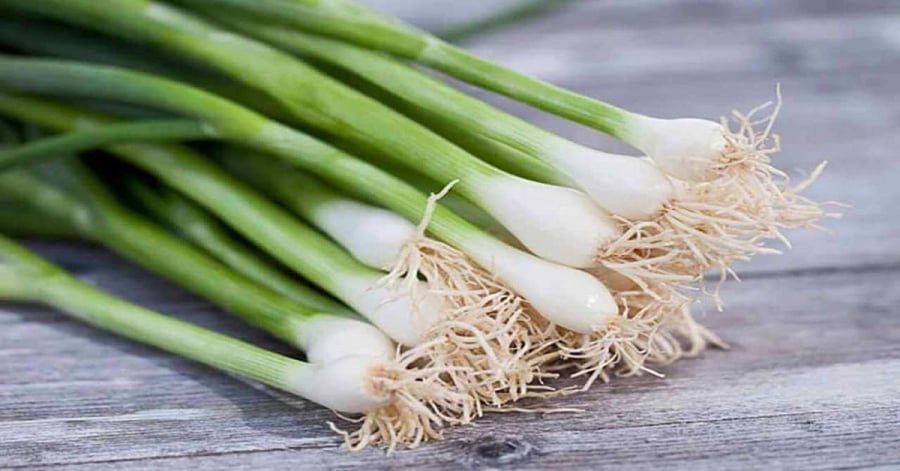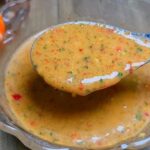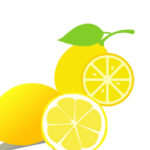Scallions, also known as green onions, are a popular ingredient in many dishes, adding flavor and a vibrant touch. However, there are certain foods that, when combined with scallions, can be detrimental to your health. Here is a list of dishes you should avoid pairing with scallions to stay safe.
1. Seafood Dishes
Seafood like shrimp, crab, clams, and snails tend to have cooling properties, while scallions are considered hot. Combining these two opposites can lead to digestive issues such as indigestion, stomach aches, and diarrhea. Additionally, in some cases, scallions may overpower the delicate flavors of seafood, making the dish less appealing.

Scallions
2. Eggs
While eggs and scallions are often paired, it’s not always a healthy combination. Research suggests that when eggs are fried with scallions at high temperatures, certain compounds in the scallions can transform into harmful substances. Overcooked or burnt scallions may produce toxins that can affect digestion and even increase the risk of cancer if consumed regularly.
3. Dairy-Based Dishes
Scallions should be avoided when it comes to dishes containing milk and cheese. Dairy products are naturally fatty, and when combined with the strong flavor of scallions, it can lead to bloating and indigestion. Moreover, scallions can interfere with the natural flavors of cheese and milk. Consuming scallions with dairy products may also hinder calcium absorption, leading to nutritional deficiencies.
4. Vinegar-Based or Sour Foods
Dishes with vinegar or sour ingredients, such as pickled cucumbers, should not be paired with scallions. Both vinegar and scallions contain natural acids, and when combined, they can disrupt the stomach’s pH balance. This may result in acid reflux, stomach aches, or indigestion. For individuals with a history of stomach issues or acid reflux, this combination can further irritate the stomach lining and worsen their condition.
5. Spicy Dishes
While scallions add a mild spiciness, they should not be combined with already spicy dishes like spicy hot pot, sour and spicy soup, or dishes loaded with chili peppers. Overloading your dish with spicy ingredients can be harmful to digestion, increasing the risk of stomach ulcers and causing discomfort.
In conclusion, while scallions offer a range of benefits, they should be used in moderation and paired wisely to ensure a healthy dining experience.





































